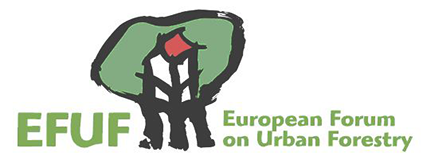Abstract Submission Requirements – EXTENDED
Abstracts with full author details should be submitted trough Conftool page (link), not later than the 20th of April 2016. Abstracts should address one or more of the EFUF conference themes. The Scientific Committee will make a selection of abstracts deemed suitable for oral presentation. Other abstracts can be developed into a poster. Information decision on abstracts will be around mid of April 2016.
Accepted formats: *.doc, *.docx
Language: English
Size: maximum of 350 words; no tables, figures and/or diagrams
The accepted abstracts will be printed in the conference guide.
• Presentation title: not more than 15 words
• Conference theme: at least one
• Key words: up to 5
• Names of all the authors, affiliation, address and contact information (e-mail, phone number in an international format)
• Name of designated presenter affiliation, address and contact information (e-mail, phone number in an international format)
• Presentation format: indicate if you prefer oral or poster presentation
Further information on poster format and the poster session will be made available soon.
Conference themes
1. Urban Forests and resilient cities
Cities need to be fit for purpose. The one thing we know is that the future holds many uncertainties. This may be the consequence of climate change such as flooding or prolonged droughts; economic cycles of ‘boom’ and ‘bust’, neo-liberalisation of the policy environment and a shrinking role for the state; geostrategic conflicts such as rapid inward migration. The reasons are many. Urban forests and other green infrastructure and the ecosystem services they provide can play an important role; but what is that role and how it can it be made robust.
2. Urban Forests, health and well-being
The population in urban areas is expected to keep increasing. People are also expected to live in ever more compact cities. With more built infrastructure, can forests, trees and other green infrastructure continue to keep urban inhabitants healthy and happy? Research tells us that citizens need to have access to green areas and that key groups such as children can suffer from nature deficit disorders. How do we address these challenges in the face of diminishing budgets and increasing expectations?
3. Urban Forests, governance and management
The role of urban forests is important not only in ecological terms but in terms of social equity and community involvement too. Fortunately citizens can, and in many places already do, play a key role in the governance and management of urban forests and other forms of green infrastructure. However in order to ensure the provision of urban forest services in the long-term a complex of legislation, ownership issues, education, public relations and conflict solving has to be factored in. Professionals know that improving the management of urban forests and trees is required to keep their high value as urban ecosystem resources, but how does this mesh with citizen involvement and the complex inter-relationships thrown up by governance.
4. Urban Forests and the promotion of a city
Branding, marketing and education are (becoming) the key activities of contemporary management of urban forests and promotion of their values and benefits. A mere slogan and a few ambitious adjectives aren’t enough anymore to persuade users, decision makers and politicians. How do urban forest researchers and managers cope with the phenomena of contemporary consumerism, the lifestyles of new generations and the changes of lifestyles of traditional generations is an open question? Furthermore which marketing tools are useful for promotion of urban forests and how do we succeed at social media? Perhaps the key issue is whether urban forests can be the ‘must have’ meme; of this marketing savvy society.
